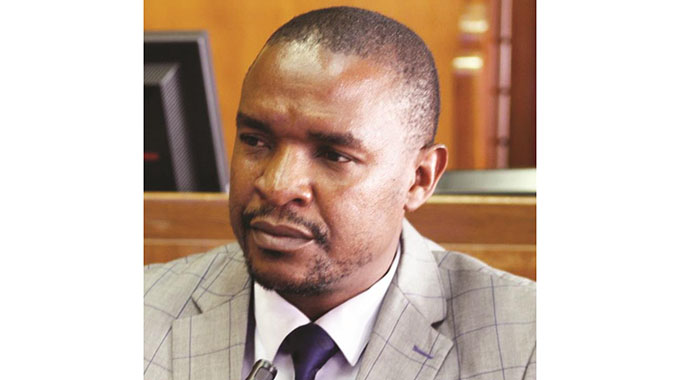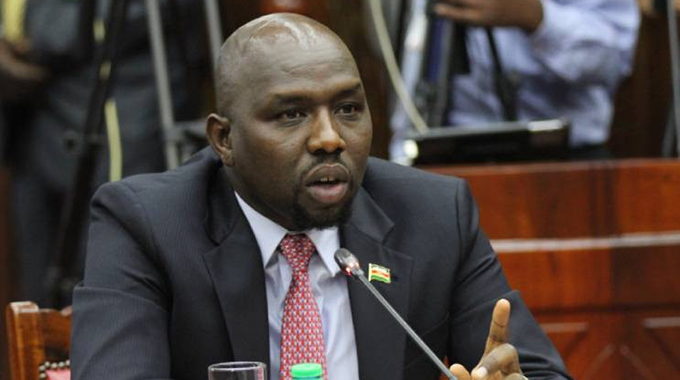CMED acquires 13 electric cars, targets buses

Freeman Razemba Senior Reporter
THE Government, through the Central Mechanical Equipment Department (CMED), has so far acquired 13 electric vehicles from a Chinese company, as Zimbabwe continues to embrace the use of such cars which are likely to take over from petroleum-fuelled vehicles across the world over the next two decades.
CMED has since been requested to also explore the provision of urban commuter services using electric buses as they are likely to bring relief to urban commuters as fares would be lower than the current ones, since the cost of running electric vehicles is far cheaper than that of conventional vehicles.
Most of the 13 cars recently purchased by CMED are being used at its driving school, EasyGo, and the rest as shuttle cars at the Robert Gabriel Mugabe International Airport.
The vehicles, and the charging infrastructure now based at the CMED Harare depot, were bought by the CMED from BYD Company, which produces cars, buses, trucks, electric bicycles, forklifts and rechargeable batteries.
On Monday, Transport and Infrastructural Development Minister Felix Mhona confirmed the developments and applauded CMED for successfully providing transport logistics for all major Government programmes.
“Let me acknowledge other positive developments happening at CMED,” he said. “First, you have ably discharged yourselves as a provider of transport solutions to Government. You have also successfully provided transport logistics for all major Government programmes such as the constitutional making process, voter education, census, general elections and international and regional conferences.
“Further, one of CMED’s subsidiaries, EasyGo Travel and Car Hire has established itself as a safe and reputable driver training school and private hire company offering quality services. As a result, it has become a darling to students seeking to be licensed drivers and users of our roads. That is a very important aspect to the Ministry as it assures us of safety on the roads.
“The same subsidiary is also spearheading the switch to electric vehicles in line with global trends. Battery electric vehicles are a clean source of energy compared to fossil powered vehicles. EasyGo’s fleet size of Battery Electric vehicles has increased to 13 and these are deployed as taxis and airport shuttle vehicles.”
Minister Mhona requested CMED to explore the provision of urban commuter services using Battery Electric buses.
“Besides protecting the environment, you are also likely to bring relief to urban commuters as fares are most likely to be lower than the current ones as the cost of running electric vehicles is far cheaper than that of conventional vehicles,” he said.
Minister Mhona said due to its high standards, EasyGo got ISO certified in 2015 and it became the first ISO certified driving school in the country.
“I wish to reiterate that my Ministry acknowledges your contribution as one of the state-owned enterprises, which should facilitate economic development for the benefit of our people,” he said. “I urge you not to relent on your recapitalisation thrust in both vehicles and equipment in a manner that does not diminish either of your mandates.
“More still needs to be done to rehabilitate our road network, both trunk roads and urban roads. This goes a long way in reducing vehicle maintenance costs for vehicle owners and transport operators.”
CMED managing director Engineer Davison Mhaka said going forward, the department was venturing into land development and agricultural projects that included land clearing, dams and canals construction and all irrigation-related projects.
“Furthermore, we are also considering land reclamation to restore our degraded and dejected lands due to mining, and this move seeks to fulfil NDS1’s environmental protection, climate resilience and national resources management strategic objective,” he said. “We have already completed the feasibility study and are engaging relevant stakeholders to support these new endeavours.
“CMED’s establishment of the Civil Construction Unit created more than 400 jobs, hence the organisation supported the government’s efforts of employment and job creation.”
Mr Mhaka said with support from the shareholder and all key stakeholders, he was optimistic that together they would be able to achieve infrastructural developmental goals by 2030.










Comments